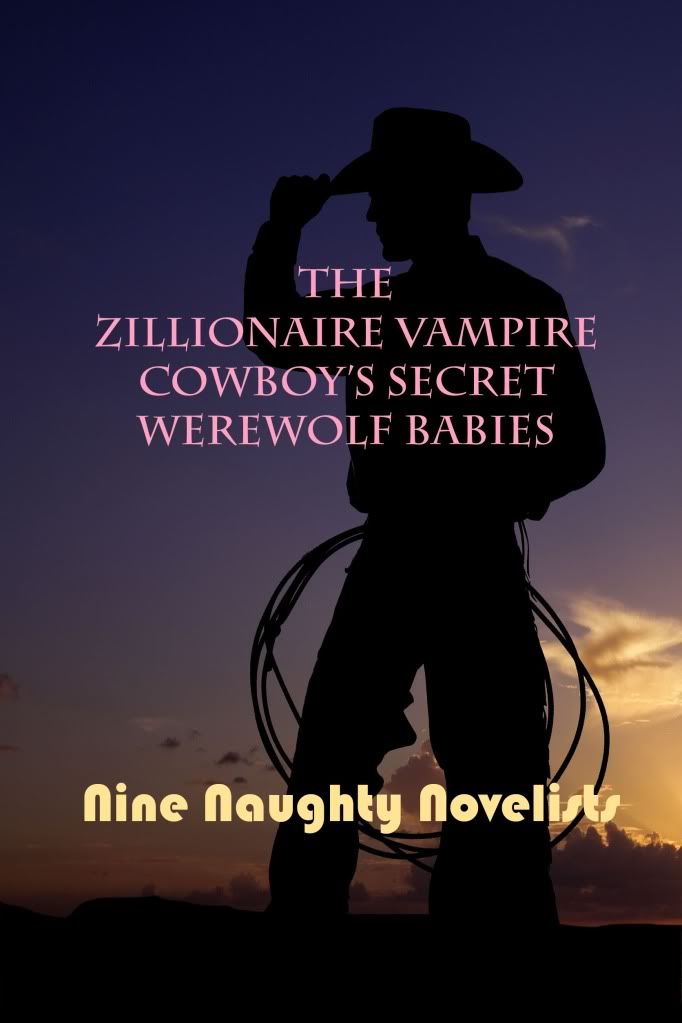
By Kinsey W. Holley
If you’re not a Twitter devotee and you don’t hang out on book blogs, you may not be aware of the controversy surrounding Harlequin’s new “self-publishing” line. If you’re vaguely aware of Harlequin’s announcement, you might be wondering what all the fuss is about. I’ve dashed off some thoughts because, frankly, the post I’d planned to write for today, about writing what you know, turned into a long, gooey mess. I’m going to work on it, but in the meantime this Harlequin thing exploded and the more I think about it, the more appalling I find it. And, at the risk of sounding patronizing, I’d like to address some issues that might be unfamiliar to aspiring writers. If you’re an aspiring author and you’re not familiar with the business of publishing, feel free to post your thoughts and questions.
Feel free to comment as well if you disagree with what you read here. This post represents my opinions only. This is a complicated issue with a whole bunch of knotty ethical and practical implications, and I think it merits discussion. I’m only going to scratch the surface here.
First off, for an excellent recap of the whole thing, go read
Jackie Kessler's superb summation. When you’re done, come back and read this, because I’m going to focus on just two things: self-publishing vs. vanity publishing, and why I think what Harlequin proposes is deeply deceptive to aspiring authors and potentially damaging to published authors.
You’ll notice I put self-publishing in quotes up there, as if I don’t think Harlequin Horizons is really a self-publishing venture at all. And I don’t, because it isn’t. Self-publishing is, by definition, something an author does herself. If you want to get a really firm handle on the subject, go read about it at
Moriah Jovan’s website. Self-publishing is a valid, workable business model for some authors, and Moriah is one who’s doing it right (and profitably). Thanks to the Internet in general (Amazon.com in particular) and print on demand technology, some of the stigma that’s long adhered to self-publishing seems to be wearing off. There have been some recent success stories involving authors who published their own books, caught the attention of New York publishing houses, and went on to sign contracts. I expect to see more such stories in the future.
But.
What Harlequin, in partnership with Author Solutions, proposes to do isn’t self-publishing – it’s vanity publishing.
In self-publishing, an author contracts with various people and companies – editors, artists, printers, distributors, etc. – to handle those aspects of production that she can’t do herself. Most importantly, the author owns the ISBN and
keeps all the profits from the book.That’s not what Harlequin will offer writers. Harlequin Horizon will charge authors to have their work critiqued and printed. How much an author pays depends on what she wants. A first chapter review will cost $342.00; a full-length manuscript edit could cost $6,000 or more. Harlequin won’t market or distribute the book – the author will have to pay for that, in addition to paying for the editing. And on top of that, if the author manages to sell her book – by putting it on Amazon, convincing local bookstores to carry it (good luck with that), going door to door, whatever – Harlequin will take half – HALF – the revenue. The only difference between Harlequin’s proposed venture and what vanity publishers have done for years is that the Harlequin Horizons double H logo will appear on the spine.
The book won’t carry the traditional Harlequin brand.
A favorite maxim of writers is that money flows to the author. Nowadays that rule isn’t as hard and fast as it used to be. Over the past few years, it’s become standard for authors to spend their own money on advertising and promotion. Only the most successful authors are given big promotional budgets. Charlene Harris, for instance, published a bunch of books before the Sookie Stackhouse series exploded, but it wasn’t until the success of that series that her publisher paid for her promotional tours.
Paying for advertising, though, is a far cry from paying a publisher for the privilege of seeing your book in print. That’s where Harlequin is trying to hook the aspiring writer, and that’s why Romance Writers of America, Mystery Writers of America, and a whole lot of other writers in America and elsewhere think what Harlequin’s doing is sleazy and unethical. It’s not, as some have alleged, that authors are afraid of increased competition. The publishing industry has always been intensely competitive. What Harlequin aims to do will take advantage of unpublished authors who may not be familiar with the publishing industry. I’m a capitalist, a free market proponent, and a big believer in
caveat emptor, but that doesn’t mean I won’t call something sleazy when I think it is.
If you’re a writer, and you’ve spent years trying to sell your book, you might think this represents a new avenue of opportunity. Sure, you have to pay out in the beginning, but you’ll get to be a Harlequin author, right?
Wrong. The writer won’t be a Harlequin author. She won’t have the benefits of Harlequin editorial expertise, Harlequin distribution channels or Harlequin marketing, or
even Harlequin branding. (Too heavy on the italics? Sorry. I'll stop now.)A writer will submit a manuscript. Harlequin will say “sorry, we don’t think your book is right for our markets. But hey – if you really want to get published, why don’t you pay us and we’ll print the book? And if the book sells, maybe we’ll offer you a contract and (maybe) we’ll take over the distribution and marketing and everything else.” Meanwhile, if the book has sold well enough to merit this contract offer, Harlequin’s already been making money on it.
So an author puts up all the money and assumes all the risk, thinking she’s been offered an opportunity to become a “Harlequin author,” when in fact Harlequin’s participation will be, as far as we know at this point, invisible to the reader.
Harlequin has risked nothing, paid for nothing. The author has assumed all the risk, but gets only half the reward. A writer could pay a freelance copy editor a lot less than Harlequin proposes to charge, could contract with
Amazon’s Create Space to handle the printing and distribution, could do her own marketing and, probably, would sell just as many books as she would if she’d paid Harlequin.
Know what I think could happen? Maybe I need to be fitted for a tinfoil hat, I don’t know. But I’m wondering – why wouldn’t Harlequin cut the number of contracts they’re offering (cut it further, that is, than they already have) and instead start offering their “self publishing” option to those authors whose books they think might sell? In other words, the books they would’ve paid for before, they’ll now charge for. The publishing industry is suffering from the recession, just like everyone else. The big houses are slashing their staffs and buying fewer titles. Even midlist writers are losing contracts as publishers pour all their money into their established best sellers. If Harlequin’s come up with a risk-free way to make money off new authors, why won’t they do it?
I haven’t even mentioned the fact that the company Harlequin’s partnered with, Author Solutions, doesn’t have a particularly good reputation among authors.
As it stands right now, RWA and MWA have stated that this venture will result in Harlequin’s removal from these organizations’ lists of approved publishers, which in turn means that Harlequin writers will be ineligible for the RITA, the Golden Heart, the Edgar, and other awards. Science Fiction Writers of America may be moving in the same direction.
This whole situation seems to be changing by the hour. Harlequin, I think, is kind of shocked by the reaction, which indicates to me that they didn’t properly think this thing through. I was so pleased – thrilled, really – when they announced the formation of Carina Press, their new epublishing arm, and that Angela James would be the Senior Editor. That was a savvy move on their part. This one, not so much. I wouldn’t be surprised to see them announce that they’re reevaluating the idea in the coming days, in which case much of what I’ve written here might be moot.
In the meantime – anyone have any thoughts? Let’s hear them.
 Chances are you’ve probably heard of Dr. Suess’s story. Maybe someone read it to you as a child. Maybe you read it to your children. Even now you can probably hear pieces of it in the back of your mind.
Chances are you’ve probably heard of Dr. Suess’s story. Maybe someone read it to you as a child. Maybe you read it to your children. Even now you can probably hear pieces of it in the back of your mind.

































